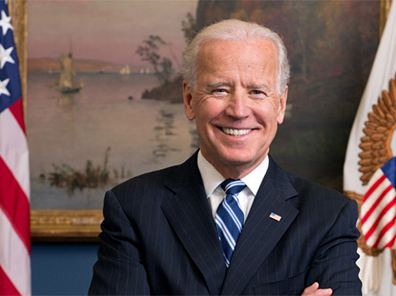
On April 27, DHS announced the launch of a multi-department initiative aimed at cracking down on smugglers, Operation Sentinel. At last, there is a good idea for tackling the disaster at the border from the Biden administration, but how effective it will be — and how broad that operation casts its net — remains to be seen.
Operation Sentinel is a joint effort involving not just the two key DHS immigration-enforcement agencies (U.S. Customs and Border Protection and U.S. Immigration and Customs Enforcement), but also the Department of State, and the Federal Bureau of Investigation and the Drug Enforcement Administration in DOJ.
According to DHS, “Operation Sentinel will map the organizations’ networks; target their members, associates, and assets; and employ a series of targeted actions and sanctions against them.” The travel documents of those targeted will be revoked, and bank accounts and other assets will be frozen (and, I hope, seized to pay for border enforcement).
The Washington Post reported that the Biden administration kicked off the effort by revoking the visas of 130 foreign nationals — most of whom are from Mexico — who were suspected of having ties to smuggling organizations.
DHS also referenced “help” in Operation Sentinel from “foreign partners” who are not otherwise identified, but logically would include the governments of Mexico, El Salvador, Guatemala, and Honduras.
Needless to say, that “help” will be key to the success or failure of this operation. Thanks to Biden administration policies, smuggling is a low-risk endeavor for most of those who engage in it because smugglers don’t usually have to go far across the border— or even enter the United States — to achieve their goals.
They can drop parents and children over border walls, send migrants across the Rio Grande in rafts, or just abandon families in remote areas. It is then Border Patrol’s job to save those migrants, but thanks to the administration’s release policies, most of the families and all but a few of the children will be released in short order and allowed to stay. Mission accomplished without much, if any, risk for the smugglers.
For that reason, Mexican government assistance (in particular) is vital to the success or failure of Operation Sentinel.
All land-based smugglers at the Southwest border have to operate on the other side of the border (even if they don’t operate out of Mexico exclusively), usually with the paid permission if not the assistance of the drug cartels that control vast swaths of northern Mexico.
The Mexican government as a whole has a vested interest in that effort. Smugglers breed lawlessness, not to mention corruption of local and federal officials, many of whom can make much better money illicitly from cartels and smugglers than they can on a law-enforcement payroll.
And those cartels are criminal organizations to be sure, but they can also be thought of as opponents of the Mexican federal government, and state governments south of the border, too. Simply put, those governments want to control events in their areas, but they have to vie with the cartels for that power.
Mexican and Tamaulipas State authorities want to control the border in the Rio Grande Valley, for example — not cede that control to the Gulf Cartel.
Of course, the aforementioned corruption runs the risk of derailing smuggling investigations. And smugglers and cartels will adjust their business models to avoid detection, so the United States and its partners will have to keep at least one step ahead of them.
If it takes two to tango, however, it also takes a willing migrant to pay the smuggler. Or, in many cases, a parent or other family member in the United States to pay smugglers to bring loved ones — and in particular children — to this country.
The DHS press release mentions nothing about whether Operation Sentinel will target those parents and family members, as well, although it is a criminal violation of the Immigration and Nationality Act to “encourage, or induce an alien to come to, enter, or reside in the United States” illegally. It is also a crime to conspire, aid, or abet alien smuggling.
Paying a smuggler to bring a foreign national to this country illegally is the definition of a conspiracy, and the criminal penalties are stiff: They range from five to 20 years.
I have called for the prosecution of U.S.-based parents who risk the lives of their children by paying smugglers to bring them to this country. And I am in good company.
More than seven years ago, federal district court Judge Andrew Hanen asked why the government wasn’t doing so when he sentenced the smuggler of a young girl (his fourth such case in as many weeks), but not the mother who had paid that smuggler (she was not even placed into removal proceedings).
Operation Sentinel is laudable, but its intentions are undermined if DHS and DOJ don’t prosecute such parents, as Hanen’s order makes clear:
By fostering an atmosphere whereby illegal aliens are encouraged to pay human smugglers for further services, the Government is not only allowing them to fund the illegal and evil activities of these cartels, but is also inspiring them to do so. ... The overall losers, who endure the consequences of this policy, are the citizens on both sides of the border who suffer from the nefarious activities of the cartels.
It is far more effective to deprive smugglers of funds to begin with than attempting to “freeze” those funds after the fact. It’s cheaper, too, and requires a lot less legwork and foreign government assistance.
Hanen compared DHS’s policy of non-prosecution of those parents to “taking illegal drugs or weapons that it has seized from smugglers and delivering them to the criminals who initially solicited their illegal importation/exportation”. And, he’s right — logically, morally, and legally.
